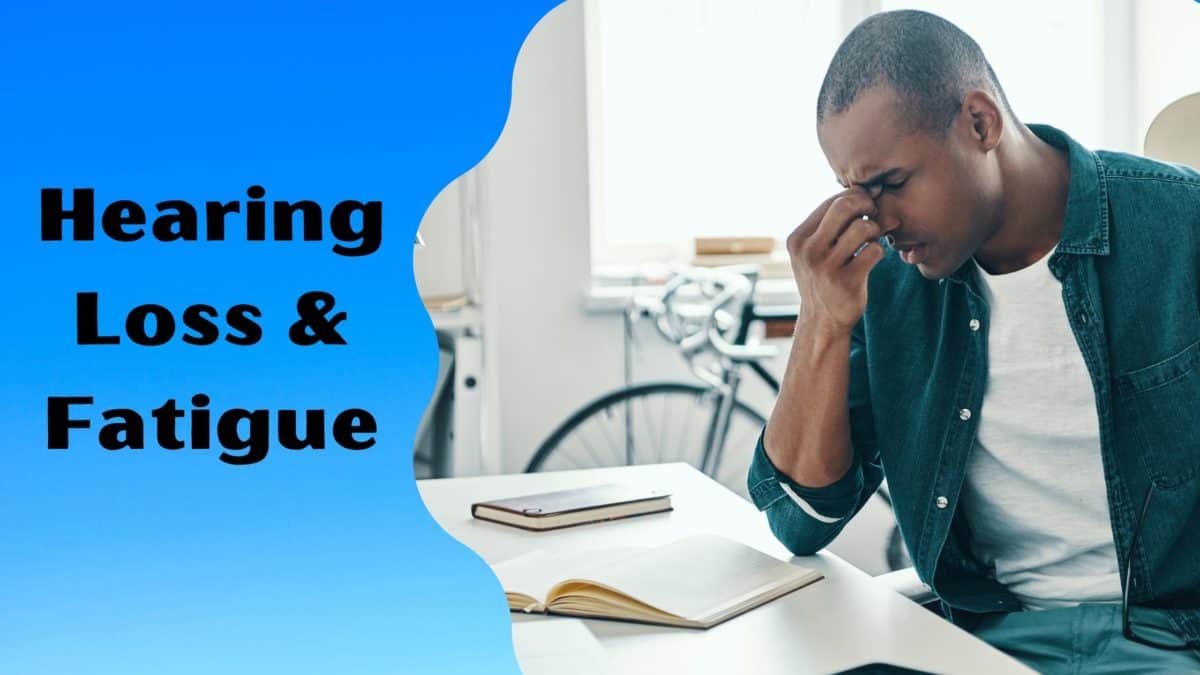- Volunteering for Hearing Health Causes - May 27, 2025
- Questions to Ask During Your Hearing Health Appointment - May 16, 2025
- Exploring Alternative Therapies for Hearing Loss - May 6, 2025
Hearing loss is the third most common medical problem in the United States, although it is frequently misdiagnosed and undertreated. While it is a common misconception that hearing loss affects our ears, the truth is that it also impacts our brains. Untreated hearing loss has ramifications in many areas of our lives, including our physical and mental health. We’ll look at how hearing loss and fatigue are linked in this article.
The brain is essential for healthy hearing.
The process of hearing is broken down as follows:
- The outer ear detects sound.
- The middle ear amplifies it.
- The eardrum converts sound waves into vibrations.
- Vibrations are subsequently sent to the inner ear and converted into neural signals.
- These signals travel through well-worn routes to the auditory processing region in the brain.
- They are then processed and recognized as sounds by the brain.
This process is disrupted in untreated sensorineural hearing loss due to inner ear hair cells issues. Loud noises, ototoxic (ear-poisoning) drugs, and other illnesses and injuries, such as tumors, can all harm inner ear hair cells. As a result, the brain has a more challenging time deciphering muddled auditory impulses, resulting in a higher cognitive burden.
Untreated hearing loss hurts cognitive abilities.
A series of research at Johns Hopkins University have found that untreated hearing loss causes a higher cognitive strain. Because processing imprecise sound signals require more work, the brain must divert resources from other cognitive tasks like memory, focus, and balance to process auditory data.
Over 600 people were examined for their cognitive and hearing abilities in one study, which lasted more than 12 years. They discovered a link between the loss of hearing abilities and cognitive capacities, according to dr. Frank lin, a lead researcher in these studies, states untreated hearing loss increases the risk of dementia.
The brain needs to work harder to make sense of the information it receives from the inner ear when there is hearing loss, which can be mentally tiring.
Help with hearing loss.
People who repaired their hearing loss with the use of hearing aids performed on par with people with normal hearing in cognitive tests, according to a study published in Japan in 2011. People who did not manage their hearing loss, on the other hand, struggled more with cognitive activities. People with medium to severe sensorineural hearing loss showed “Improved word memory and their [visual] reaction times were much faster with hearing aids than without,” according to a 2011 Vanderbilt university study.
It can be challenging to spot the indications of hearing loss at first; learn more about them here. Contact us if you suspect you – or a loved one – may be experiencing changes in your hearing.
How to cope with fatigue caused by hearing loss
Hearing aids can help you improve your general health and well-being by reducing your time using your cognitive abilities to understand ambiguous sound signals. On the other hand, hearing loss can cause fatigue throughout the day, especially while getting fitted for hearing aids and learning to adjust.
Taking small breaks from the noise may be beneficial if you are in a noisy place all day. To clear our minds, find a quiet spot or take a short walk. Use your lunch hour at work to go somewhere peaceful, read a book instead of watching tv or a movie, or meditate. You can also remove your hearing aids for a short period to enjoy the silence.
Meditation is beneficial to everyone, especially those who work in stressful environments. To begin meditating, set aside 15 to 20 minutes and find a peaceful spot to sit. When inhaling and exhaling through your nose, take deep breaths and concentrate on your breath.
If meditation isn’t your thing, a power sleep can be a good alternative. According to the national sleep foundation, a 20-to-40-minute nap can aid alertness and brain function.
If you are concerned about your hearing, contact us today! We provide comprehensive hearing exams and hearing aid fittings. Visit us for a hearing test if you notice a change in your hearing abilities or have unexplained fatigue throughout the day.

